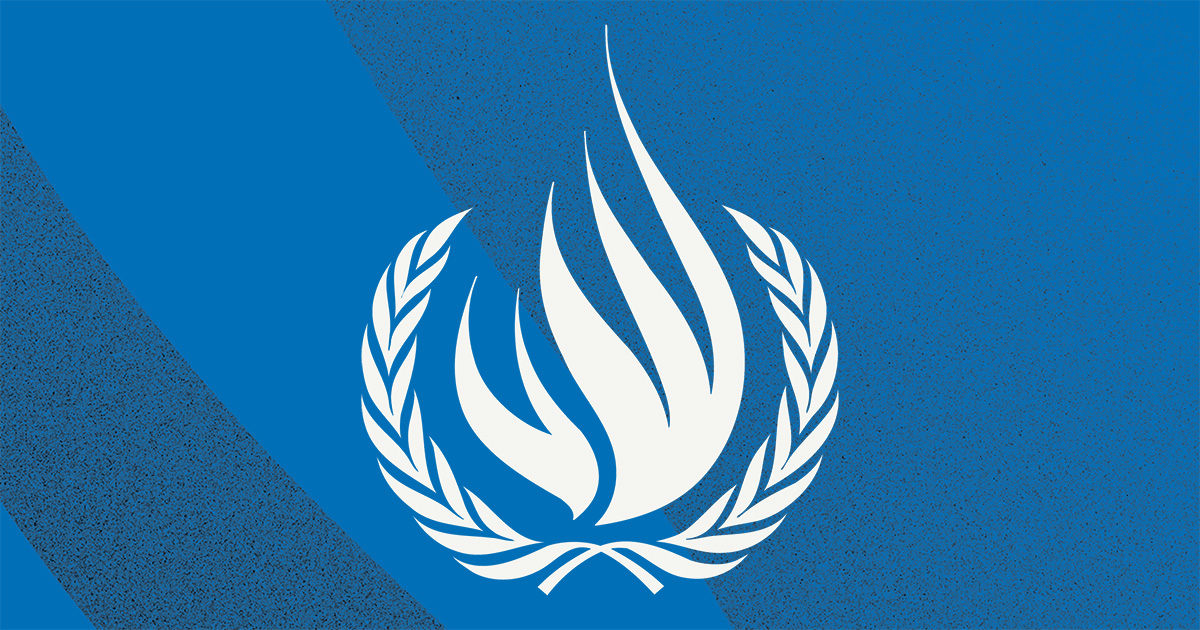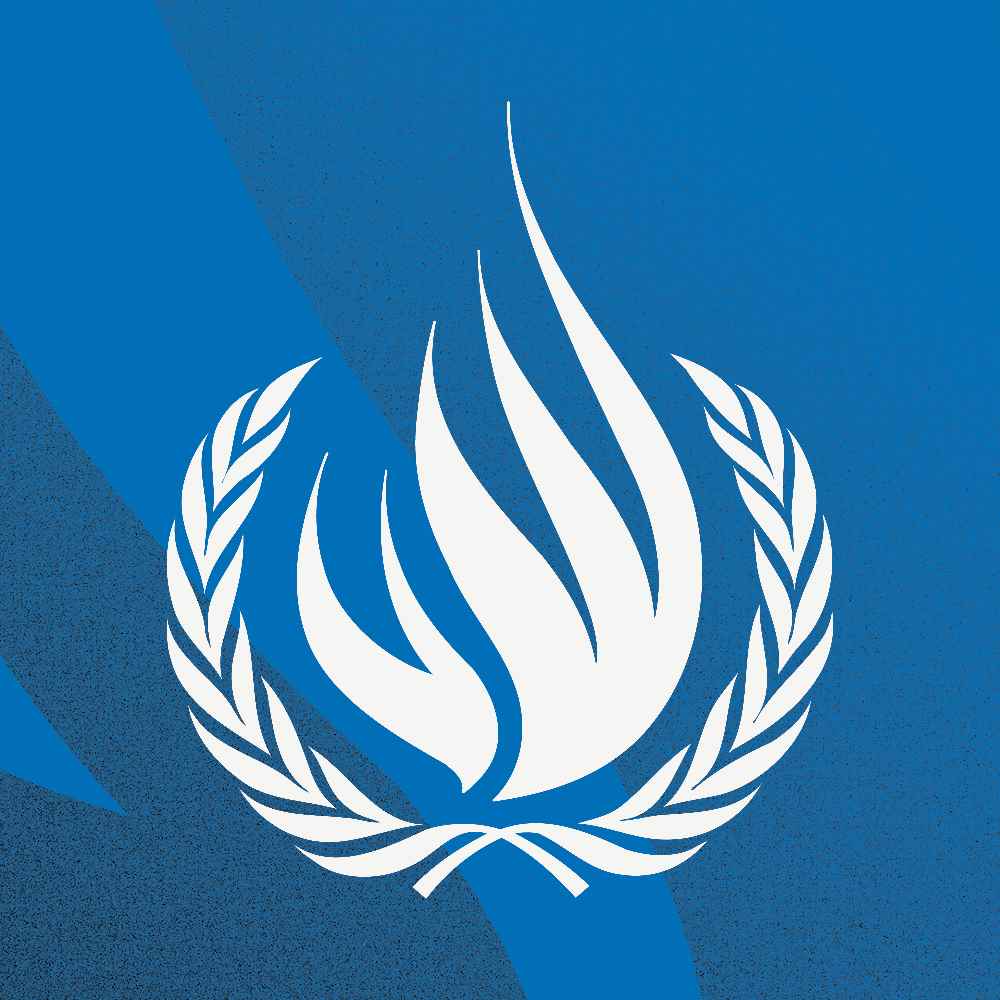
United Nations High Commissioner for Human Rights Volker Türk
At
High-level meeting to mark the closure of the International Decade for People of African Descent - ECOSOC Chamber, UNHQ, New York
Related
Statements and speeches
High Commissioner statement to ACT Alliance General Assembly
Statements and speeches
International Day of Older Persons – a celebration and a call to action
Statements and speeches
Threats to the rights of LGBTIQ+ people once again on the rise, Türk warns at the Summit of the Future
Excellencies, colleagues, friends,
Ten years ago, when the United Nations General Assembly proclaimed the International Decade of People of African Descent, the world coalesced around a clear objective: to promote the realization of the human rights and fundamental freedoms of people of African Descent, everywhere.
Across the globe, people were calling for the dismantling of the ugly, insidious legacies of centuries of enslavement, colonialism and other systems of oppression – which have burdened people of African descent for far too long.
Today’s meeting is an opportunity to reflect on what we have achieved – and where we fell short. And most of all, to identify what is still needed to deliver transformative change in the lives of people of African descent.
The International Decade has seen some important progress.
It fostered action by States, international and regional organizations, national human rights bodies, and non-governmental organizations, including of people of African descent.
In fact, it fostered a sense of solidarity among people, which is very important in today’s world.
More than 30 States changed their laws and policies to tackle racial discrimination and to address the specific issues faced by people of African descent – some for the first time.
Some modified their constitutions to formally recognise people of African descent as a distinct community.
And others created institutions to lead, coordinate or contribute to efforts to promote the human rights of people of African descent.
The International Decade helped to empower young leaders of African descent all over the world, who are standing up for racial justice, equality and human rights.
And it has generated global support for racial justice and equality – with outcomes including the establishment of the Permanent Forum on People of African Descent in 2021.
It was also an opportunity to celebrate the incredible heritage and culture of people of African descent.
It is simply impossible to imagine our world without their enormous and groundbreaking contributions – in science, in economic and social development, in literature, cinema, philosophy and so much more.
Political theory, sociology, art and music – parts of our very essence as human beings – would be unrecognizable without their contributions.
And today, a new generation of people of African descent – from activists to artists to economists – is continuing to shape our societies and our cultures, helping to build a more just and equal future.
We must recognize, cherish and celebrate these contributions, past and present.
Despite this progress, we are still a long way from where we need to be.
Our societies remain full of obstacles – systemic, historical and destructive – that prevent people of African descent from enjoying their human rights and fundamental freedoms.
Racism, discrimination and inequality are still woven into the very fabric of their lives – in mundane and momentous ways.
A woman of African descent being denied adequate pain relief while giving birth, a Black teenager dropping out of school prematurely, a Black child killed by a police officer while playing with friends.
People of African descent experience higher rates of sickness, lower life expectancy, and higher infant and maternal mortality.
They experience higher unemployment rates, earn lower wages, and occupy less skilled positions, compared with the rest of the population.
They are under-represented in public and political affairs.
Across the board, people of African descent are disproportionately affected by poverty, the impacts of climate change and environmental injustice, the risks of racial bias in new digital technologies and in interactions with law enforcement and the criminal justice system.
Many of these layers of discrimination intersect in pernicious ways, piling up on top of each other, suffocating individuals and entire communities who sit at the crossroads of entrenched power structures and systems of oppression.
This is unacceptable and deplorable, and it must change.
Distinguished delegates, friends,
The proclamation of an inclusive Second International Decade for People of African Descent is key to that goal.
A Second International Decade will sustain momentum and build on progress. It must drive even greater efforts and even more decisive action to address both long-standing issues and growing contemporary challenges.
People of African descent must be at the centre of this process. The Second International Decade must be informed by their lived experiences, knowledge and expertise. Their perspectives are central to shaping their futures.
We must learn from what happened in the past ten years, so that the coming decade is truly transformative. So that, by the end of the next decade, we live in more equal and more just societies.
That means decisive action to dismantle systemic racism – through new policies, laws and institutional measures.
It means addressing historic injustices and their contemporary manifestations.
And it means confronting the legacies of enslavement and colonialism and delivering reparatory justice.
This must be grounded in international human rights law and include formal apologies, truth-telling processes, and reparations in various forms.
It also means placing racial equality at the centre of sustainable development. And the adoption of a robust UN Declaration on the respect, protection and fulfilment of the human rights of people of African descent.
Real change – transformative change – will only come through strong leadership, greater political will, and increased resources.
That starts here, now, today – and my Office will continue to do its utmost to support these efforts and more.
The history of humanity, thought and creativity begins with Africa. All human activity traces its roots to Africa. Africa’s descendants are carrying forward that history, and our lives are much richer because of it.
Those of us who are not of African descent need to reflect on that legacy and honour it.
Together, we must all stand united, for recognition, justice and development for people of African descent everywhere.
Thank you.








